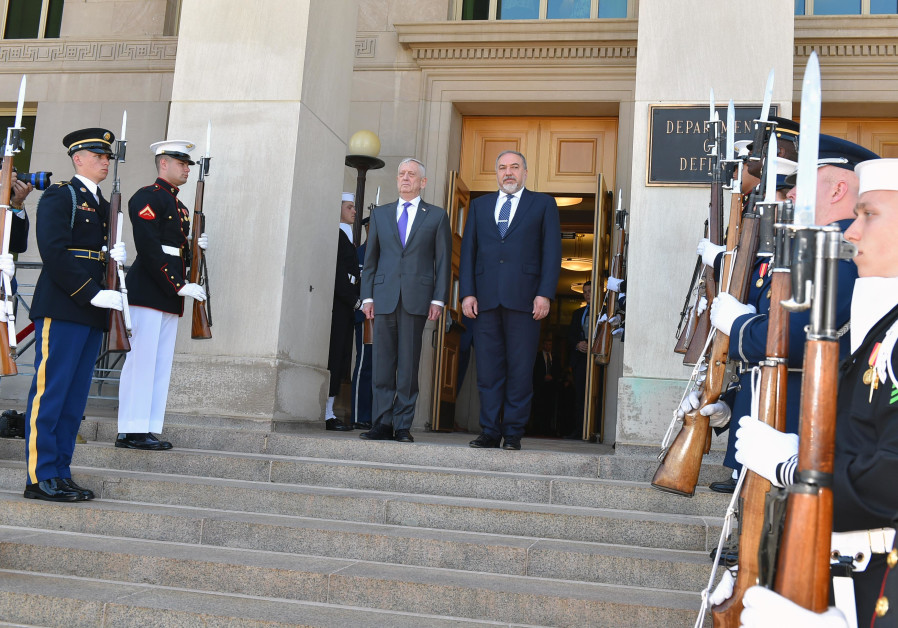Mattis, receiving Liberman, warns of ‘likely’ conflict between Israel and Iran

WASHINGTON — Direct conflict between Israeli and Iranian forces is increasingly likely in Syria as Tehran pursues a permanent military presence there, US Secretary of Defense James Mattis warned on Thursday.
Addressing a congressional panel before hosting his Israeli counterpart, Avigdor Liberman, at the Pentagon, Mattis said it was “very likely” from his perspective, “because Iran continues to do its proxy work there through Hezbollah.”
Receiving Liberman, Mattis told reporters that he saw no reason for Iran to ship advanced missiles to Hezbollah through Syria except to threaten Israel.
“I can see how it might start, but I am not sure when or where,” the secretary told lawmakers. Mattis then echoed Liberman’s warning from earlier in the day, issued through a Saudi newspaper, in which he said Israeli forces would strike Tehran if Iranian missiles ever hit Tel Aviv.
The two met at the Pentagon after Liberman met with US President Donald Trump’s national security advisor, John Bolton; his special representative for international negotiations, Jason Greenblatt; and his son-in-law and senior adviser, Jared Kushner, at the White House.
Iran was the focus of conversation there, as well, according to a statement issued by Israel’s embassy in Washington.
At the hearing, Mattis seemed to question the wisdom of hastily withdrawing from the Iran nuclear accord, just two weeks shy of a May 12 deadline set by Trump for US and European diplomats to come up with “fixes” to its most controversial provisions.
Should they fail, Trump is threatening to withdraw the US from the agreement by reimposing nuclear-related sanctions on Iran lifted by the 2015 deal.
Mattis said that criticisms of the agreement are “valid,” but that, ” obviously, aspects of the agreement that can be improved upon.” The position appeared in sync with that of French President Emmanuel Macron, who at the White House on Tuesday proposed expanding on the existing nuclear deal rather than attempting to start from scratch.
”I will say it is written almost with an assumption that Iran would try to cheat,” Mattis told the Senate panel. He said he had read the agreement in full several times, including its classified annexes.
Read More: J Post